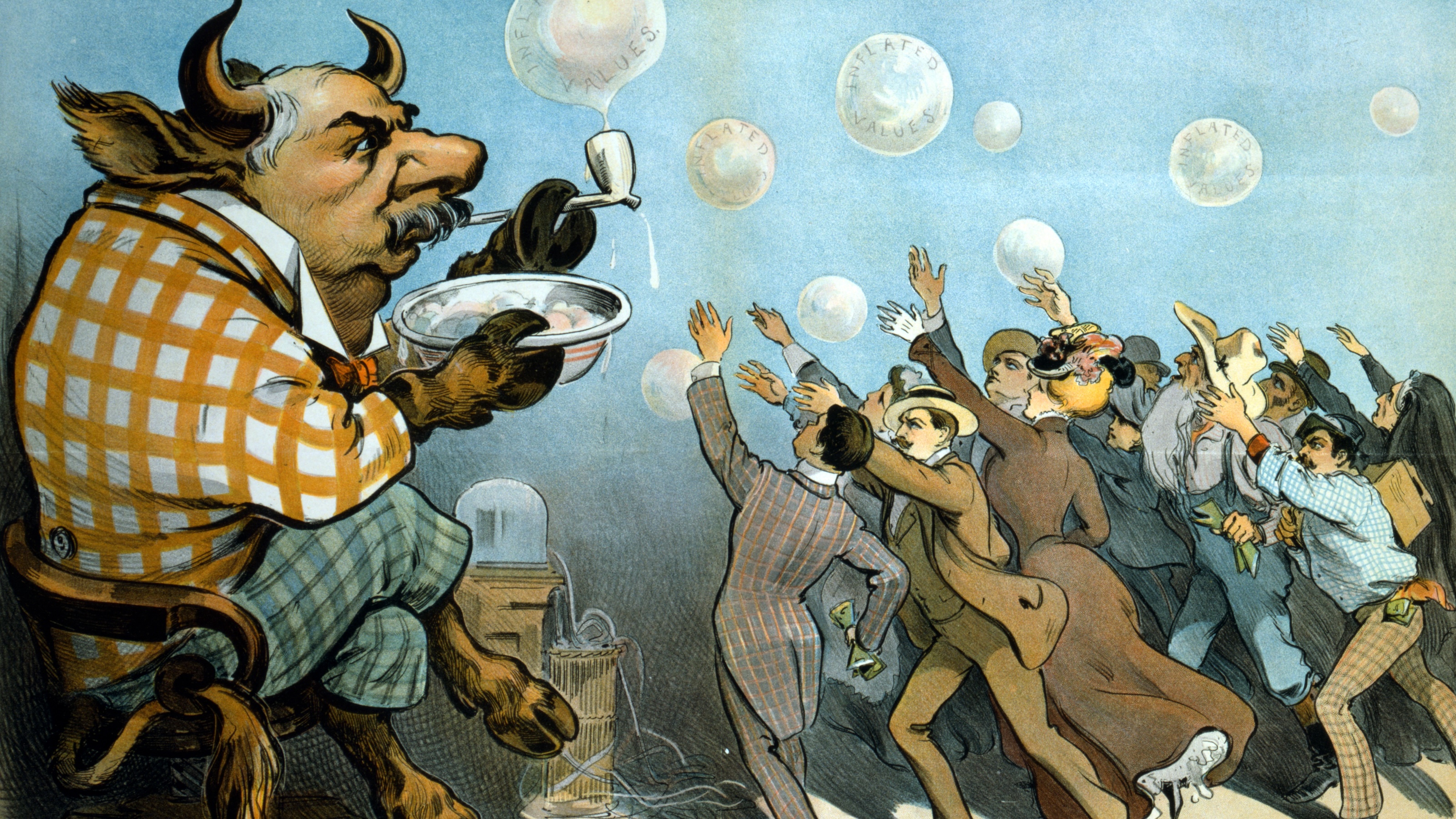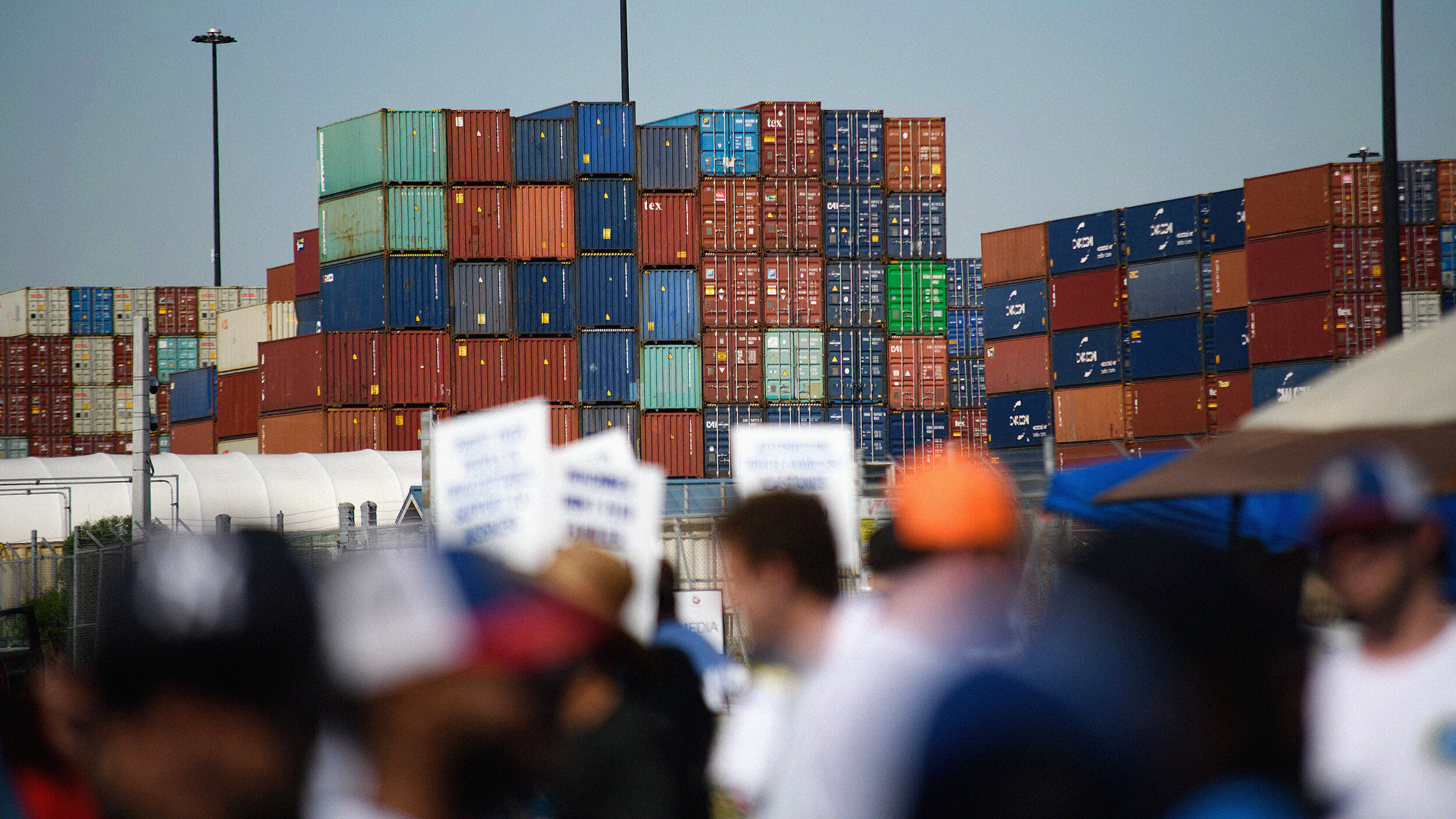Will AI create more jobs or send us the way of the horses?

- If AI betters us at all cognitive tasks, we could end up like the predecessors of the internal combustion engine.
- AI is much better at finding patterns in complex datasets than people but it can’t offer genuine empathy.
- Exactly how AI copilots and assistants are built will determine how effective they are.
Among the biggest fears attending AI’s rapid advance is mass unemployment. In 2013, the economist Carl Benedikt Frey and the machine learning professor Michael Osborne, both at the University of Oxford, published a landmark study that found almost half of all U.S. jobs were at “high risk” of being automated within two decades. Although their methodology was later criticized — one OECD (Organisation for Economic Co-operation and Development) study using a different method concluded less than 10 percent of U.S. jobs could be fully automated in that time frame — the specter of AI-induced mass unemployment has not disappeared.
In 2018, PwC projected that fully a third of all jobs globally could be automated by the mid-2030s. These fears have been amplified following the release of ChatGPT. Goldman Sachs estimated that the “equivalent” of 300 million jobs globally could be automated away in the new era of generative AI. Sam Altman, OpenAI’s chief executive, while stopping short of predicting mass unemployment, told The Atlantic that “Jobs are definitely going to go away, full stop.”
Given such headlines, it’s not surprising that the specter of AI leading to mass unemployment haunts the public imagination. Surveys conducted by Microsoft and the OECD found between half and three-fifths of workers globally feared they would lose their jobs to AI. But both history, and economic analysis, argue against such a dire outlook. While there are reasons to be concerned about the effects of AI on the overall economy, mass unemployment isn’t one of them. The real risks are around wage depression and inequality. And while AI will undoubtedly displace workers, we have a lot of power to shape the extent to which this occurs. Creating incentives for companies to use AI to complement human capabilities, rather than simply usurping them, can ensure the economic effects of the AI revolution are positive overall.
Previous technological revolutions have displaced workers from some jobs, but on a net basis, more new jobs have always been created. This is because new technologies don’t just make existing industries and business models more efficient; they create entirely new industries. Take the automobile. Cars put people in the horse-and-carriage trade out of work. But they created many more jobs in automobile manufacturing, road construction, the oil and gas industry, and service stations. By revolutionizing transport and logistics, they made many other businesses more efficient and profitable, and those companies were able to expand and hire more workers, too.

A 2015 study by economists at the accounting firm Deloitte used 144 years of British census data to assess technology’s impact on jobs since 1871. It found that while technology displaced people from jobs involving physical labor, particularly in agriculture and in factories, it created far more jobs in areas including nursing, childcare, elder care, business services, and the invention of technology itself. More people became professionals, and within professions, technology helped drive specialization. There were twenty times more accountants in Britain in 2011 than in 1871. Between 1992 and 2011, the number of typists in the U.K. fell by 57 percent, while management consultants skyrocketed by 365 percent. A World Economic Forum analysis also concluded that far more jobs have been created through technological change than were destroyed.
Three factors make many people suspect that AI will be different. The first is the breadth of its impact. AI is a general-purpose technology — more akin to steam power and electrification — than it is to something narrow like a welding robot. The second is the speed of its development and adoption. AI could displace so many roles, across so many sectors, so quickly, that it would eliminate jobs far faster than new ones could be created or people could be trained. At least, that’s the fear. This was not, in fact, the experience with these other general-purpose technologies. They all created more jobs than they eliminated and were drivers of economic growth. But the adoption of those technologies took long enough that people had time to transition. AI’s adoption appears faster, which only fuels concern.
Finally, AI strikes directly at our comparative advantage as a species: our brainpower. And when a species loses its comparative advantage to automation, the results aren’t pretty. Just ask the horses. Their only comparative advantage was muscle power. When the internal combustion engine beat them at it, they had nowhere to go. Most were sold off, put out to pasture, or turned into glue. The people in the horse trade fared far better. Their brains allowed them to find other jobs. But with AI we are facing a technology that, for the first time, directly challenges our comparative advantage — our intellect — across every field. If AI betters us at all cognitive tasks, we’ll end up like the horses.
Creating incentives for companies to use AI to complement human capabilities, rather than simply usurping them, can ensure the economic effects of the AI revolution are positive overall.
However, we probably don’t have to worry about the glue factory just yet. AI won’t be able to match our cognitive abilities across all tasks anytime in the next few decades. AI will make us more productive, but it won’t be able to automate everything. The Stanford economist Erik Brynjolfsson, the Carnegie Mellon professor Tom Mitchell, and other researchers examined 950 occupations and broke them down into 18,000 occupation-specific tasks. They then examined the likely impact of machine learning and AI. “We found that in none of those jobs did machine learning or any of these technologies just run the table and do everything that the person was doing previously,” Brynjolfsson says. “In each of them, there were some parts of the job that machine learning could help with, but other parts where humans still need to be in the loop. So that means you can’t just pull a human out and put a machine in their place, you have to do a lot more reorganizing and restructuring.”
Evidence shows that centaurs — the term given to human–AI teaming — produce better performance than either people or software can achieve alone. AI and human intelligence may be complementary in many ways. AI is much better at finding patterns in complex datasets than people. AI can generate content faster than people can. But it can’t write as well as the best human writers. It isn’t nearly as good at planning, or at developing novel ideas. It certainly can’t understand a person’s body language or offer genuine empathy.
Exactly how these AI copilots and assistants are built will determine how effective they are. It turns out these same choices also make a significant difference in AI’s economic impact. The good news is that it’s not too late to make decisions that will push companies toward AI software intended to augment people rather than replace them.





